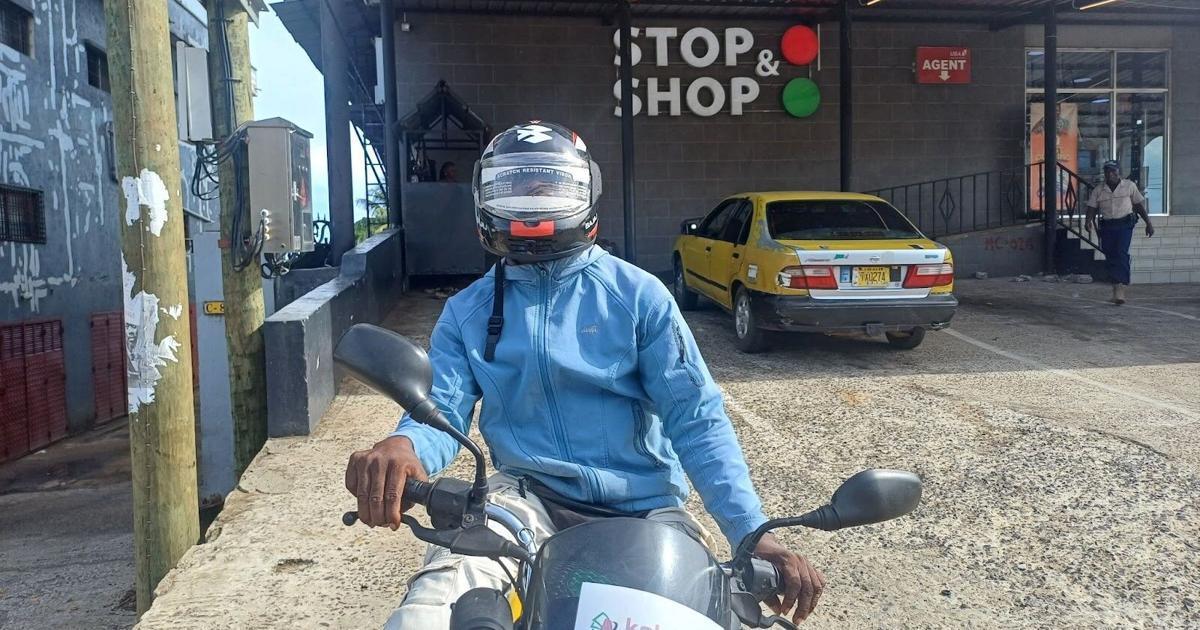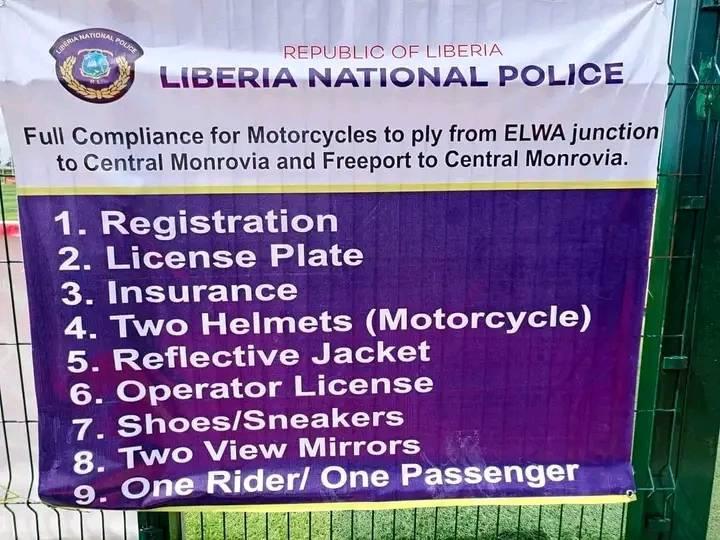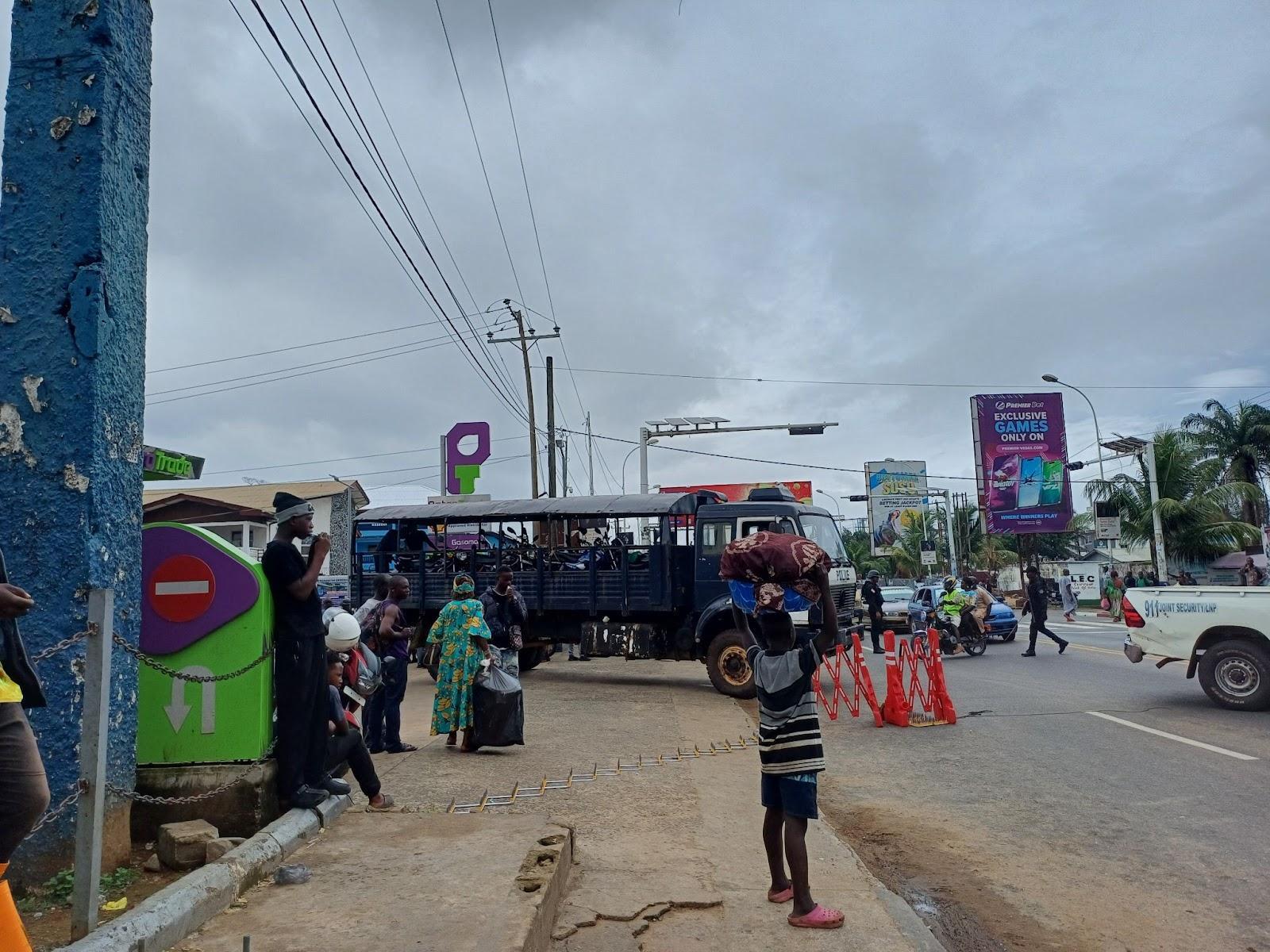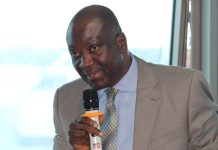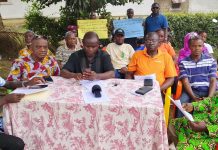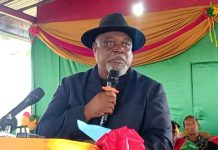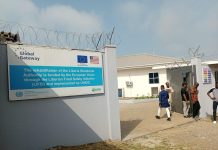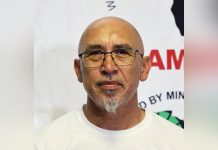Africa-Press – Liberia. When the Liberian National Police (LNP) announced that safety measures would be enforced starting March 15, 2024, Emmanuel Hoto, and so many cyclists did not believe.
Hoto, like hundreds of other motorcyclists, was shocked on Wednesday morning when the police arrested several bikes whose riders were seen plying without the required two helmets (one for the passenger, one for the rider), a license plate, an insurance sticker, a reflective jacket, two view mirrors, and a pair of shoes or sneakers.
“We are begging the Police and the government to give us time. We need three months to get all of those things the police are asking for,” he said.
Hoto immediately rushed home to grab his helmet when heard that other riders’ bikes were seized. “For some of us, we are riding for people [who own these bikes], and we are in susu, so the police should give us time for us to buy the other things and get our insurance, license plate, and jacket,” he adds.
The situation yesterday caused huge traffic in Paynesville City, especially at the ELWA junction to central Monrovia, which compelled commuters to walk. Some stood for hours. Others were jammed together in taxis — five passengers at the backseat and two in the front seat. Compounding the situation was the apparent shortage of taxis on the street because the ongoing inspection exercise from the Ministry of Transport also includes vehicles, not only tricycles, and bikes. A truck transporting motorbikes, seized from riders who were caught in violation of the regulatory measures, to the Liberia National Police Headquarters in Monrovia.
Students, civil servants, and private and public workers were seen in a queue waiting for taxis to come to Monrovia.
For a number of weeks now, the LNP have aired awareness messages about the “No-Go Zone”, warning motorcyclists to stay off key corridors including the Beer Factory to Monrovia, G.S.A Road to Monrovia, the entire ELWA highway, Gardernesville to Freeport, and the main Tubman Boulevard.”
According to Gregory O. W. Coleman, LNP Inspector General, the “No Go Zone” was intended to mitigate the high number of deaths resulting from accidents.
The campaign prompted the cyclists to stage a series of protests in Monrovia, which gained public attention with mixed reactions.
Some argued that the cyclists have been an essential form of transportation, especially for students, including high school pupils who live outside Monrovia but have to come to town for school.
Others argued that the Cyclists have increased the rate of criminals who will snatch bags, phones or other valuables from unsuspecting people standing by the roadside.
This reaction prompted the Vice president of Liberia, Jeremiah Koung, to intervene, causing the LNP to relax the restrictions. In a release, the LNP said it decided to relax the restrictions, following a meeting with the Vice President of the Republic of Liberia, Jeremiah K. Koung, and heads of the Federation of Motorcycle and Tricycle unions at the Capitol, in Monrovia.
The restructured restrictions have brought some relief to the cyclists, but whether the cyclists would abide by these guidelines is a question that many are asking.
The riders have been one of the groups the government struggles to regulate. Political pundits warned that Liberia has a huge population of said riders are a key constituency during election cycles. As a result, politicians are careful not to upset the motorcyclists or risk being voted out.
“We are begging the police to give us three months,” Timothy Johnson, a cyclist, said. “We are law-abiding citizens in this country. This government is our government.”Meanwhile, Montserrado County District number ten Representative Yekeh Kolubah has also appealed to the Liberia National Police to give the Motorcyclists at most one month to obtain their documents in a drive to be in full compliance as required by law.
For More News And Analysis About Liberia Follow Africa-Press

